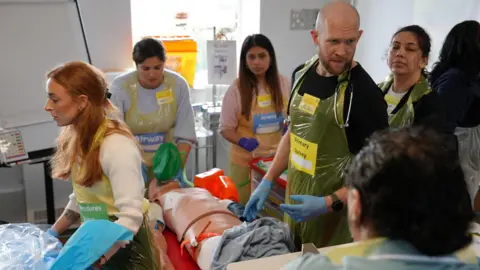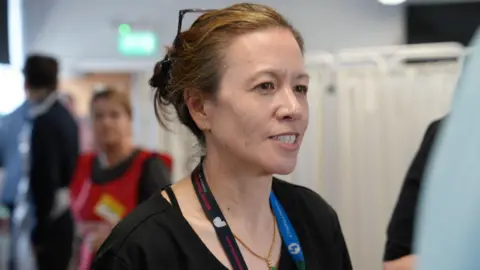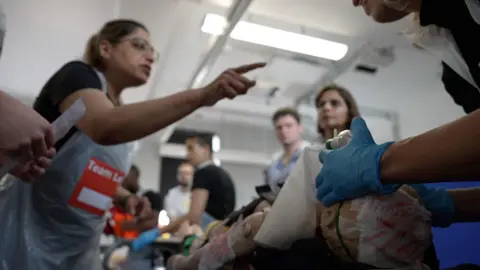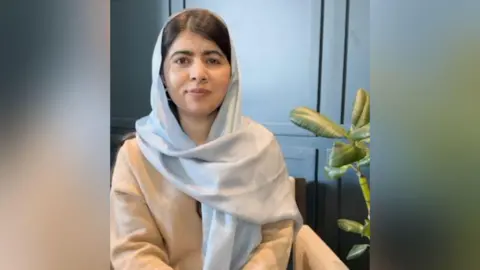Warzone training used to treat stabbing victims
 BBC
BBCSurgical skills developed by doctors in war zones are now routinely being used to treat victims of gun and knife crime.
Effective treatment of penetrating wounds, including stabbings, and stabilising blast injuries have become embedded in trauma care at the Royal Centre for Defence Medicine (RCDM) at Birmingham's Queen Elizabeth Hospital (QE).
"All of those military lessons we have learned, we have tried to make them routine in our civilian practices," explained trauma specialist Dr Justine Lee, who served in the Army for 18 years.
"That would be such amazing legacy for our soldiers and everyone who's been injured or killed in conflicts."
The RCDM has been based at the QE for 15 years, after moving from the old Selly Oak Hospital.
In that time, it has treated dozens of military personnel.

The BBC was invited to see a mass casualty simulation, a training exercise for medical staff to prepare them for a major incident.
Held at the QE roughly every six months, scenarios may include multiple stabbings, a bomb blast, a road traffic accident or any incident involving multiple severe injuries.
There is a strong focus on providing a rigorous local response.
"We need to be able to respond to all of the interpersonal violence that's happening in our communities," said Dr Lee.
"Penetrating trauma is what we experienced in wartime, and we learned how to manage those injuries.
"Now, we're just doing it in greater numbers".

Among those taking part in the training were consultants, nurses, resident doctors, paramedics, haematology staff and hospital porters
In another area of the hospital, military personnel from overseas were drilled in the highly pressurised environment of trauma care.
If a reminder were needed of the importance of fast, effective surgical care, a video was sent to staff at the QE from one of their best-known former patients – Malala Yousafzai.
The women's rights campaigner and Nobel Peace Prize recipient underwent cranial surgery at the hospital after being shot in the head by the Taliban in Afghanistan.
Ms Yousafzai, then 15, was returning home from school in the north-western Swat district when her school bus was boarded by gunmen.
She underwent reconstructive surgery in Birmingham and was discharged in early 2013.
 University Hospitals Birmingham NHS Trust
University Hospitals Birmingham NHS TrustMs Yousafzai paid a special tribute to the hospital to mark its 15th anniversary.
"I am so grateful to doctors, nurses and staff members who looked after me," she said. "I want to thank you all for the service you do for the community".
It's a reminder to Dr Lee of the importance of the work carried out at the hospital, and the training that staff continually undergo.
"Trauma care delivery in Birmingham is very focused," she said.
"We learn so much in warfare but as soon as the war ends, we don't want that knowledge to disappear.
"We really want to sure that those lessons remain."
Follow BBC Birmingham on BBC Sounds, Facebook, X and Instagram.
